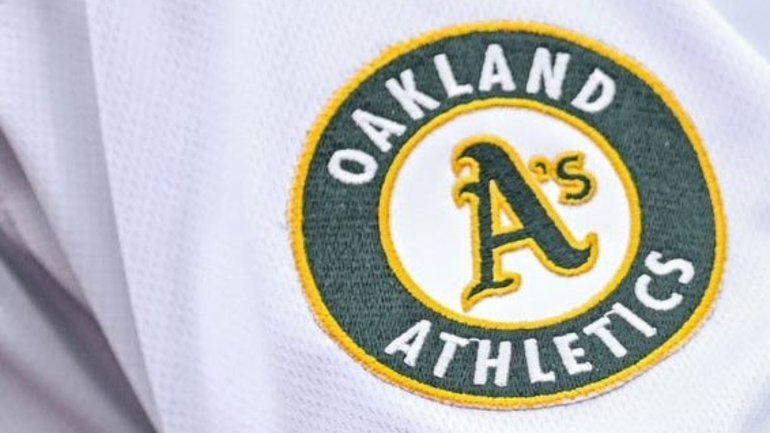
The Oakland A's proposed relocation to Las Vegas remains in a holding pattern even after the bid received unanimous approval from MLB owners in mid-November. Despite the general general sense of stasis, however, some recent relevant events bear mentioning.
The first regards the club's supposed Jan. 15 deadline to release specific and actionable stadium plans and have funding for the project in place – a deadline that if missed would have imperiled the A's status as revenue-sharing recipients. That now seems not to be the case, as Jan. 15 has come and gone without any new ballpark renderings or financing details from A's owner John Fisher and team president Dave Kaval. That missed deadline, though, may not bring about the expected consequences. As the Associated Press reports, Steve Hill, CEO and president of the Las Vegas Convention and Visitors Authority, said the current tentative ballpark plans are enough to satisfy the league and the Players Association and secure the A's revenue-sharing status for 2024. Per the AP, Hill stated:
"Major League Baseball and the players' association have already agreed that there is a commitment and the structure in place for the A's to move to Las Vegas and have agreed to that they met the requirements that needed to be in place by yesterday in order to continue with revenue sharing."
As for the uncertain ballpark project, Nevada Gov. Joe Lombardo signed a $380 million public funding bill back in mid-June as a means of luring the Athletics to town. The bill's actual cost will likely exceed $380 million, as explained by Neil deMause. The entire ballpark project is expected to cost more than $1 billion, which means Fisher still must secure a great deal of private financing for the project.
As John Shea of the San Francisco Chronicle points out, however, Fisher and the A's have yet to release stadium plans, secure the very substantial amount of public funding, or even find a place to play games in 2025 after their lease at the Oakland Coliseum expires. Shea also reports that the yet-to-be-rendered ballpark maybe be taking a turn for the more modest:
Renderings of the A's future home in Las Vegas haven't been made public, but it has been learned the roof will be fixed (not retractable) and the design will include a massive window beyond the outfield to provide views. Nevada Independent reporter Howard Stutz said on a recent public-broadcasting panel that Kaval told him the renderings might not be released until the A's play their spring training series in Las Vegas against the Brewers on March 8-9.
Initially, the A's floated plans for a retractable roof. Having some kind of roof is essential given the sizzling summer temperatures in Las Vegas, but retractable roofs are very expensive. Going with a fixed roof will lower the price of the project substantially, and thus improve Fisher's perhaps dubious chances of landing the private financing he needs. As well, the Tropicana site on the Strip is a relatively small one, and retractable-roof stadia come with fairly large footprints. Pivoting toward a permanent dome would make that relatively modest plot of land more viable, at least in theory.
Regardless of how much private money Fisher winds up needing, another potential hurdle merits note. The "Schools Over Stadiums" political-action group continues to press for a public referendum on the use of tax dollars to fund the project, and, as Bill Shaikin of the Los Angeles Times notes, they're using the court system and fundraising to advance that goal. Such public handouts to wealthy sports-team owners tend to do poorly when put to a public vote, which is why team owners, leagues, and local politicians advocating for them tend to do whatever they can to avoid those referenda.
For Fisher and those who want him to realize his efforts to move to Las Vegas, these recent developments can be characterized as generally positive, but all of it remains a heavy lift and one loaded down with genuine doubt.






















